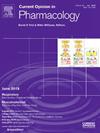Therapeutic hurdles in acute myeloid leukemia: Leukemic stem cells, inflammation and immune dysfunction
IF 4.2
3区 医学
Q1 PHARMACOLOGY & PHARMACY
引用次数: 0
Abstract
Acute myeloid leukemia (AML) is an aggressive and highly heterogeneous hematological malignancy characterized by clonal expansion and differentiation arrest in myeloid progenitor cells. Despite advancements in chemotherapy, allogeneic hematopoietic stem cell transplantation, and post-remission maintenance therapies, the long-term survival remains unsatisfactory with high rates of relapse and refractory. These therapeutic challenges are mediated by multiple factors, including the complexity of the cellular hierarchies in AML, the interaction of leukemic stem cells (LSCs) with the bone marrow niche, inflammation, and immune evasion mechanisms. Further, the absence of specific surface markers that distinguish LSCs from normal hematopoietic stem cells, together with LSCs’ functional heterogeneity, complicates targeted treatment approaches. Immune dysfunction, including T cell exhaustion and immune suppression within the bone marrow niche contributes to therapy resistance. In this brief review, we aim to explore current challenges in AML therapy, focusing on LSC-driven resistance, immune evasion, and the need for innovative therapeutic strategies.
急性髓系白血病的治疗障碍:白血病干细胞、炎症和免疫功能障碍
急性髓系白血病(AML)是一种侵袭性和高度异质性的血液系统恶性肿瘤,其特征是髓系祖细胞克隆扩增和分化停滞。尽管化疗、异体造血干细胞移植和缓解后维持治疗取得了进展,但长期生存率仍然令人不满意,复发率高,难治性强。这些治疗挑战是由多种因素介导的,包括AML细胞层次的复杂性、白血病干细胞(LSCs)与骨髓生态位的相互作用、炎症和免疫逃避机制。此外,缺乏区分LSCs与正常造血干细胞的特异性表面标记物,加上LSCs的功能异质性,使靶向治疗方法复杂化。免疫功能障碍,包括骨髓生态位内的T细胞衰竭和免疫抑制,有助于治疗抵抗。在这篇简短的综述中,我们的目标是探讨AML治疗当前面临的挑战,重点是lsc驱动的耐药性、免疫逃避以及对创新治疗策略的需求。
本文章由计算机程序翻译,如有差异,请以英文原文为准。
求助全文
约1分钟内获得全文
求助全文
来源期刊
CiteScore
8.80
自引率
2.50%
发文量
131
审稿时长
4-8 weeks
期刊介绍:
Current Opinion in Pharmacology (COPHAR) publishes authoritative, comprehensive, and systematic reviews. COPHAR helps specialists keep up to date with a clear and readable synthesis on current advances in pharmacology and drug discovery. Expert authors annotate the most interesting papers from the expanding volume of information published today, saving valuable time and giving the reader insight on areas of importance.

 求助内容:
求助内容: 应助结果提醒方式:
应助结果提醒方式:


